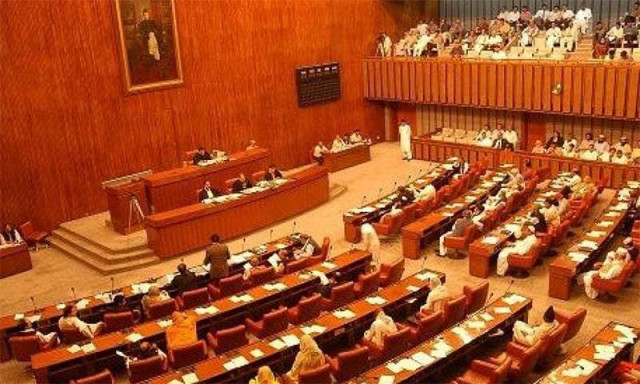Senate may fail to complete parliamentary year
Upper house still needs to meet for 56 more days to complete minimum requirement of 110 days

Upper house still needs to meet for 56 more days to complete minimum requirement of 110 days. PHOTO: FILE
It is mandatory, under Article 61 read with article 54(2) of the Constitution, for the Senate to hold at least three sessions and to meet for not less than 110 days in each parliamentary year.
In addition, more than 120 days should not intervene between the last sitting of the Senate in one session and the date appointed for its first sitting in the next session.
According to sources, the Senate Secretariat has written three letters to the Ministry of Parliamentary Affairs asking it to immediately summon the upper house in accordance with the Constitution but the ministry has not replied to any of these letters.
Senate panel to get briefing on judges accountability
The letters have stated that there is a need to hold a Senate session for 54 days in the current parliamentary year. However, if a session is not summoned immediately the upper house may fail to meet the constitutional requirement.
Senate of Pakistan is the upper legislative chamber of the bicameral legislature of Pakistan, and together with the National Assembly makes up the parliament. The president, from time to time, summons either house or both the houses of parliament under Article 54(1) of the Constitution.
However, the Senate chairman can also, under Article 54(3), summon the Senate on a requisition of one-fourth of the total membership of the house.
In either case, the Senate secretary issues a notification to be published in the gazette stating date, time and place of the meeting and also sends it to each member. The session is also announcement over media. A notification with regard to prorogation of the Senate is also published in the gazette.
Each session of the Senate starts from the date of commencement of its first sitting and concludes when the house is prorogued by the president or the chairman, as the case may be.
The opposition parties often accuse the PTI government of making the parliament nonfunctional and relying on presidential ordinances brining legislation for discussion in the parliament.
(With additional input from News Desk)



1724319076-0/Untitled-design-(5)1724319076-0-208x130.webp)















COMMENTS
Comments are moderated and generally will be posted if they are on-topic and not abusive.
For more information, please see our Comments FAQ